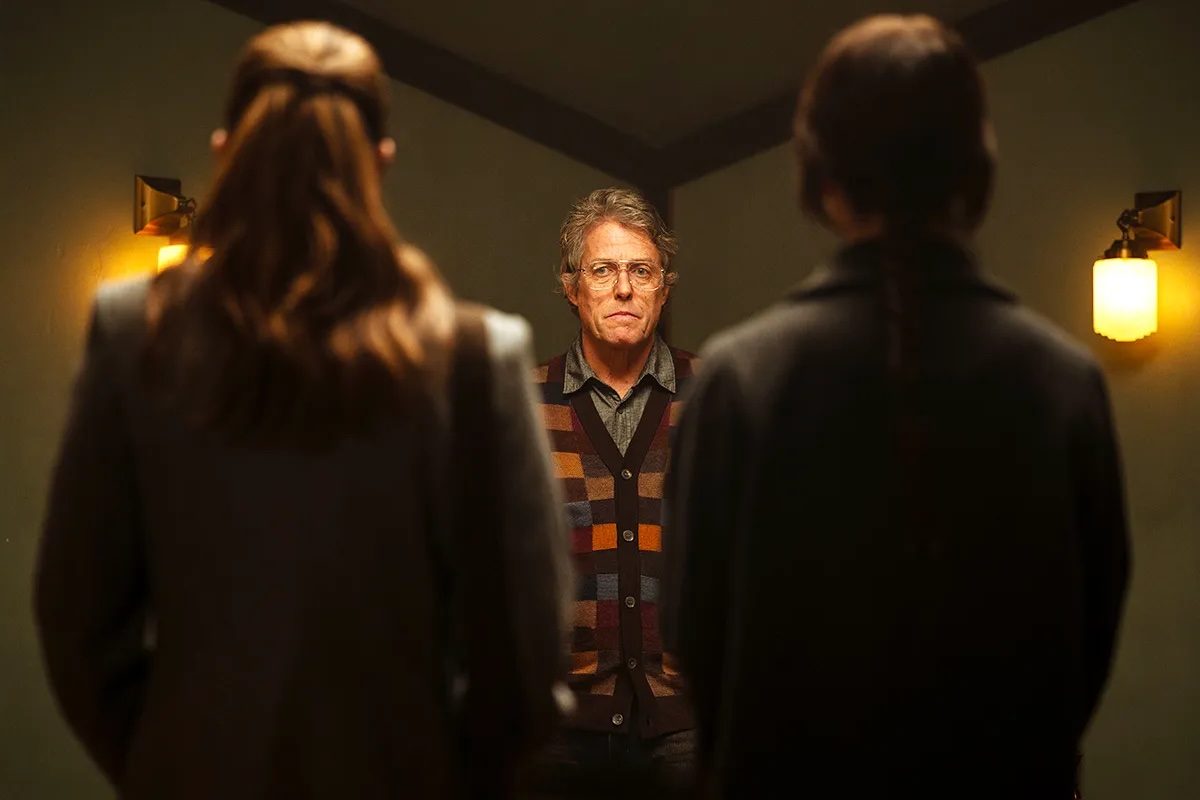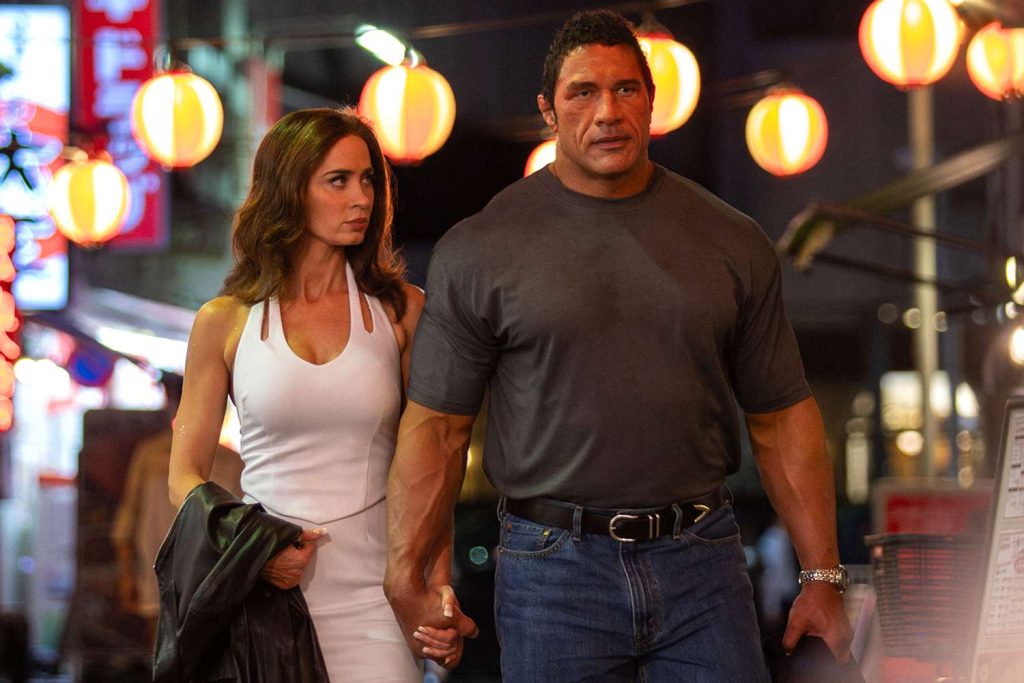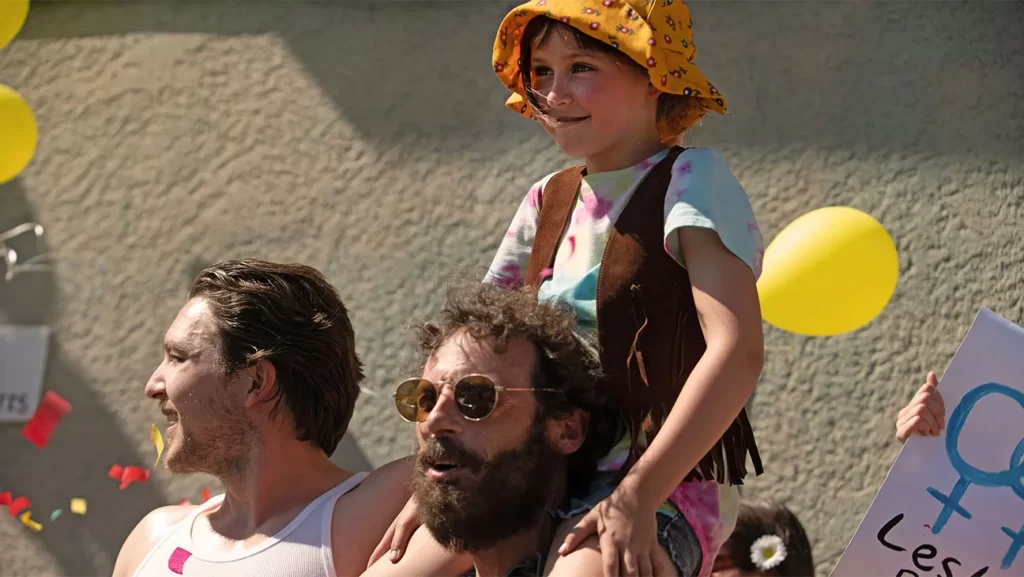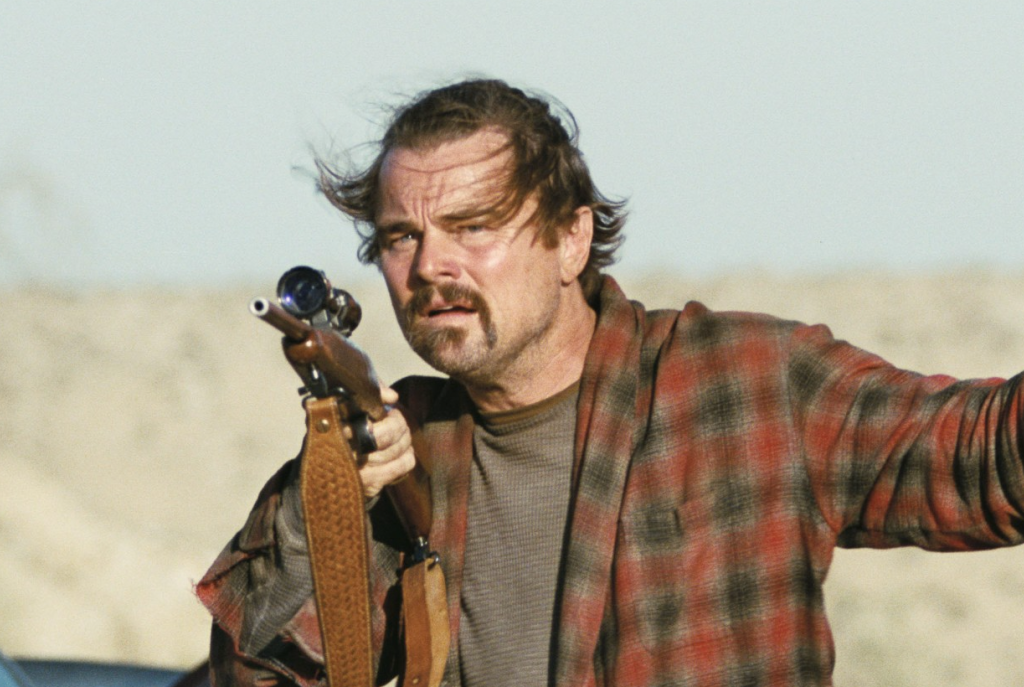Scott Beck and Bryan Woods’s Heretic has a premise so delicious, it’s hard to blame the trailers for giving it away. Sister Barnes (Sophie Thatcher) and Sister Paxton (Chloe East) are Mormon missionaries doing at-home visits to spread the Good Word who find themselves in the living room of the charming and inquisitive Mr. Reed (Hugh Grant). They’re not supposed to be with him without a woman present, but his wife is in the next room, he assures them, and she’s baking a blueberry pie, and would they like a slice? And so they all sit, and discover that he knows his stuff, challenging them with pointed questions and carefully-wielded knowledge.
Beck and Woods, who both write and direct, keenly see and hear every gesture and word of this first, forced conversation—in which the nervous young women and the genial older man debate questions of revelation, theology, and the limitations and contradictions of religion— all while carefully building a palpable sense of fear and dread. A wicked storm is brewing, of course, and Reed’s cottage is full of creaky doorknobs and groaning floorboards, and, soon worse. The two missionaries try so hard to be kind and polite, even in the face of his increasingly strange behavior… and then the bottom drops out.
The script is a model of narrative efficiency, basically getting right to the battle of wits, but with just enough character and relationship development to put us on firm firmament as they go through that door. Their byplay is believable, and their dynamic of lopsided enthusiasm (Sister Paxton is seemingly stronger in her faith than Sister Barns) gives the filmmakers plenty to both work from and subvert; their screenplay cleverly scrambles their motivations and strengths as the situation evolves.
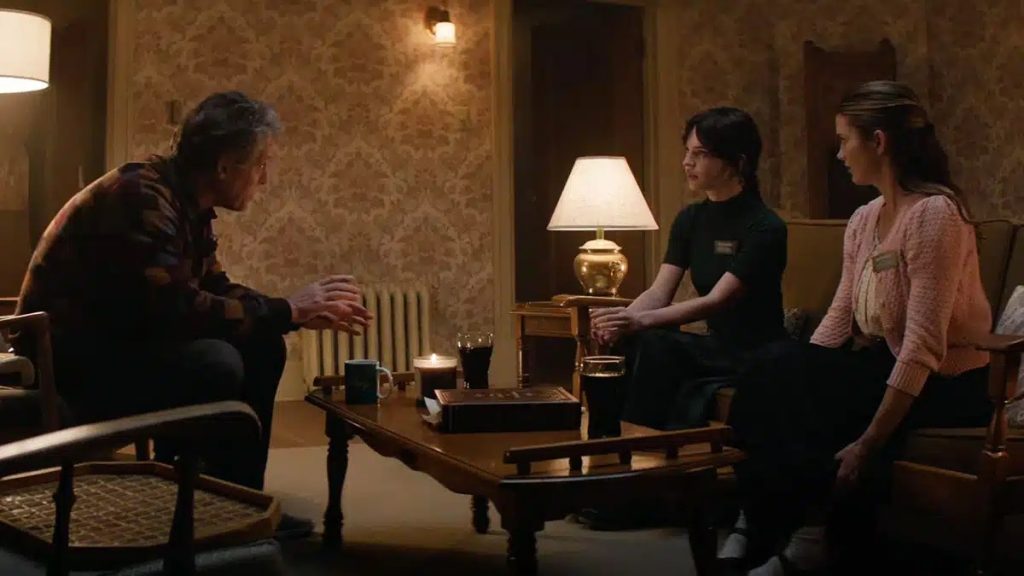
The real news here, of course, is Hugh Grant playing an outright villain (though not for the first time, as evidenced by A Very British Scandal and, a bit more lightheartedly, Paddington 2 and Dungeons and Dragons: Honor Among Thieves). He doesn’t do it in any obvious way—there is no evil cackling or mustache twirling, with the actor instead pulling off the neat trick of being utterly terrifying while only seeming affable. The key to the performance is its folksiness, using his British charm and brisk intelligence to its full advantage, and turning his charming and familiar rom-com persona ticks into loaded threats; witness his little grimace after he intones, “It may make you want to die,” or his high-pitched “Of course!” when Sister Barnes asks if they can leave.
Of course, many an actor has turned a well-established screen image on his head; that’s step one of this dazzling performance, which reminds us that there’s always been a nuanced actor in his skin, and he absolutely feasts on the picture’s showcase expositional speech. Thatcher and East have less showy roles, but they find the meat in them, using the casual byplay they establish early on to motor a rich array of silent moments of panic, encouragement, and camaraderie.
The filmmakers conform to the A24 house style without sacrificing a sense of pace or excitement; the picture moves like a shot, comes in as late as possible, and jumps out with similar efficiency. It’s a marvel of production design (the work of the great Phil Messina), and while the cinematography (by Park Chan-Wook’s frequent collaborator Chung Chung-hoon) is occasionally too muddy, he finds some genuinely disturbing images. Some of the camerawork calls a bit too much attention to itself, and Beck and Woods don’t always trust the audience to connect the dots. But Heretic is a sturdy and effective thriller, and serves as further confirmation that Hugh Grant is still capable of surprising (and even shocking) his audience.
B+
“Heretic” is in theaters this weekend.
